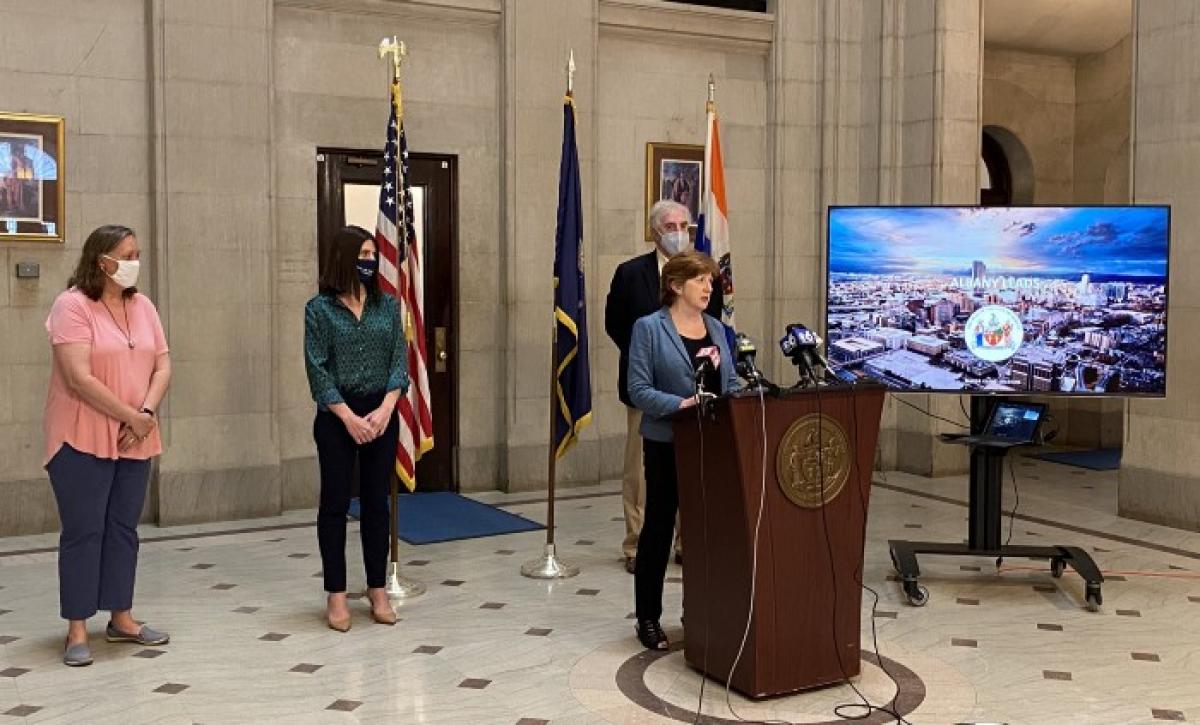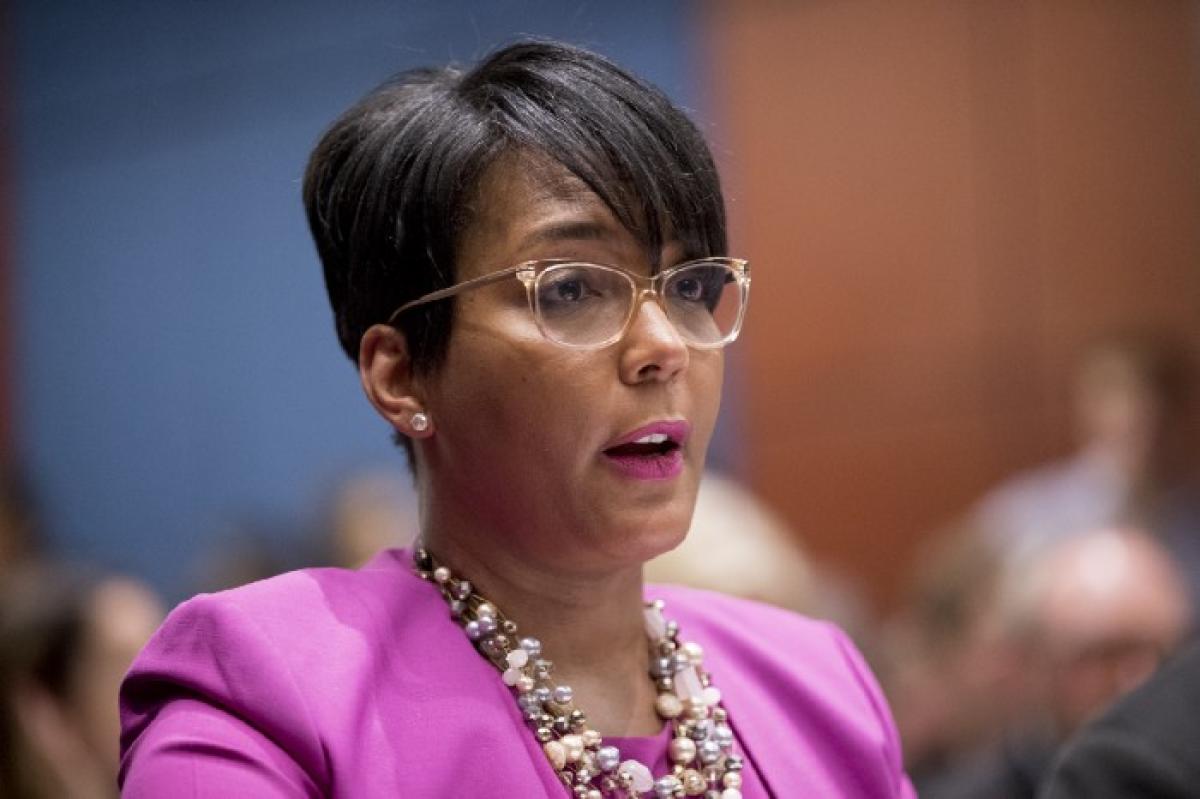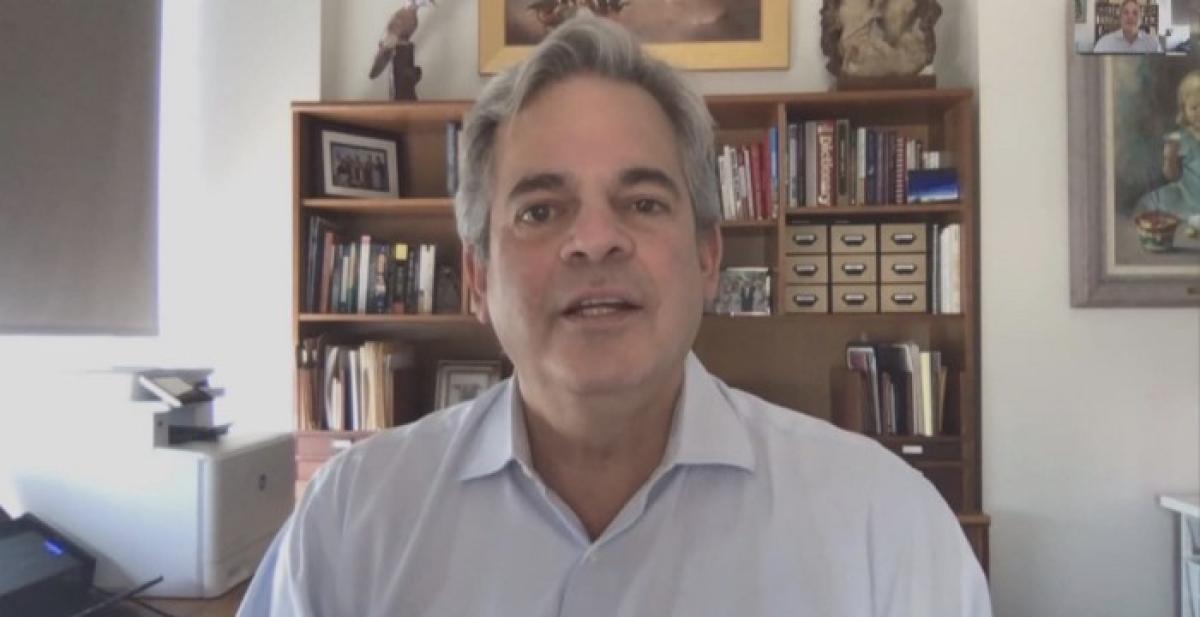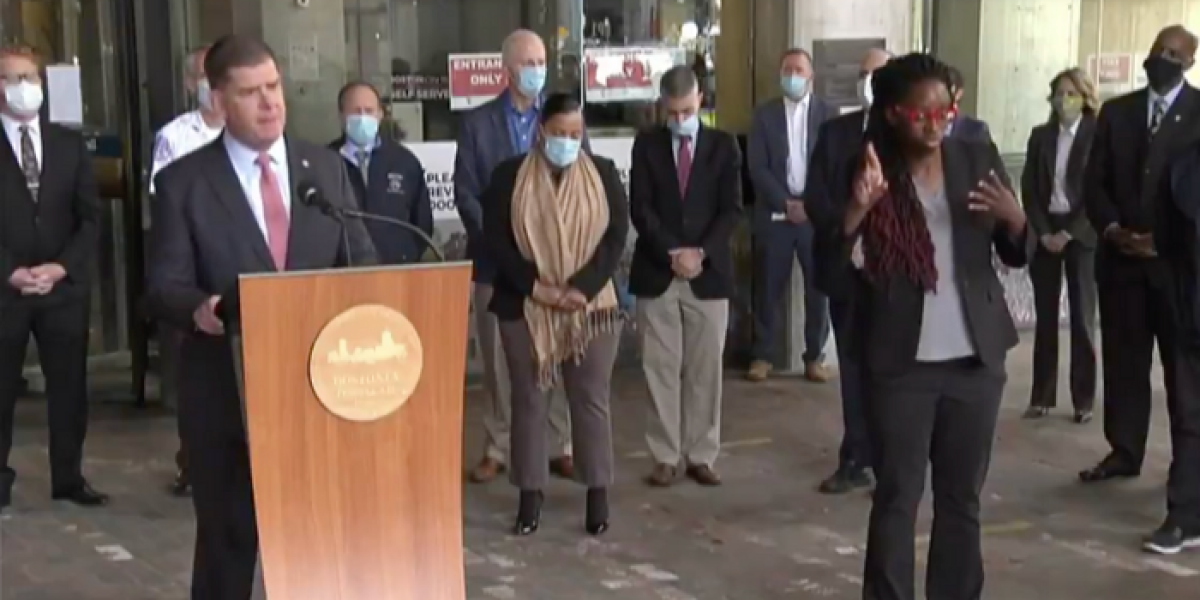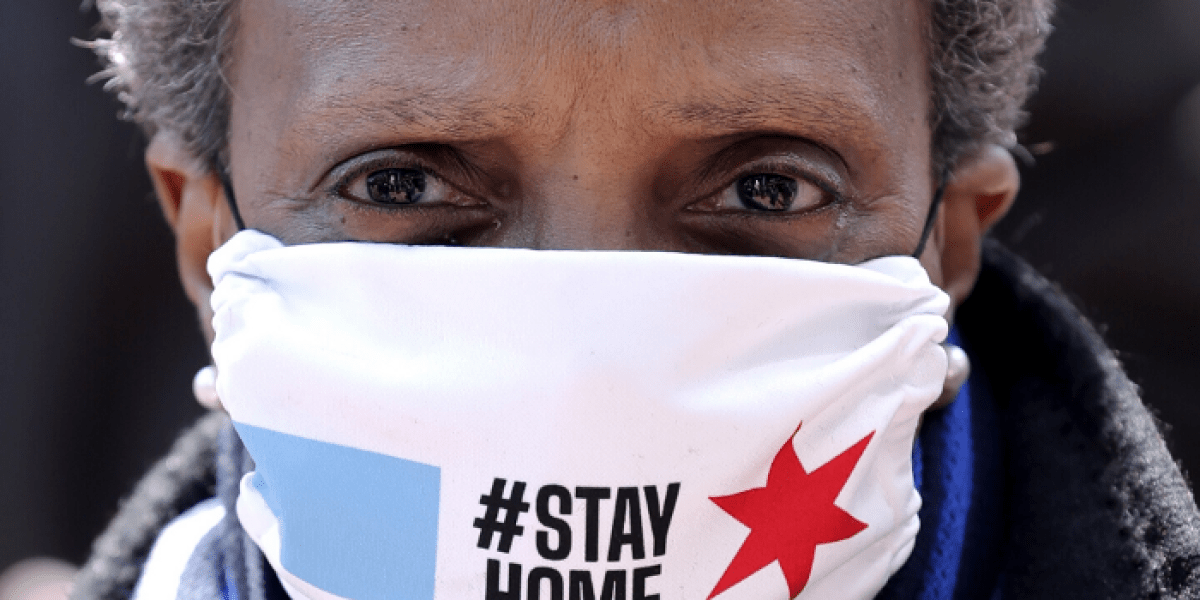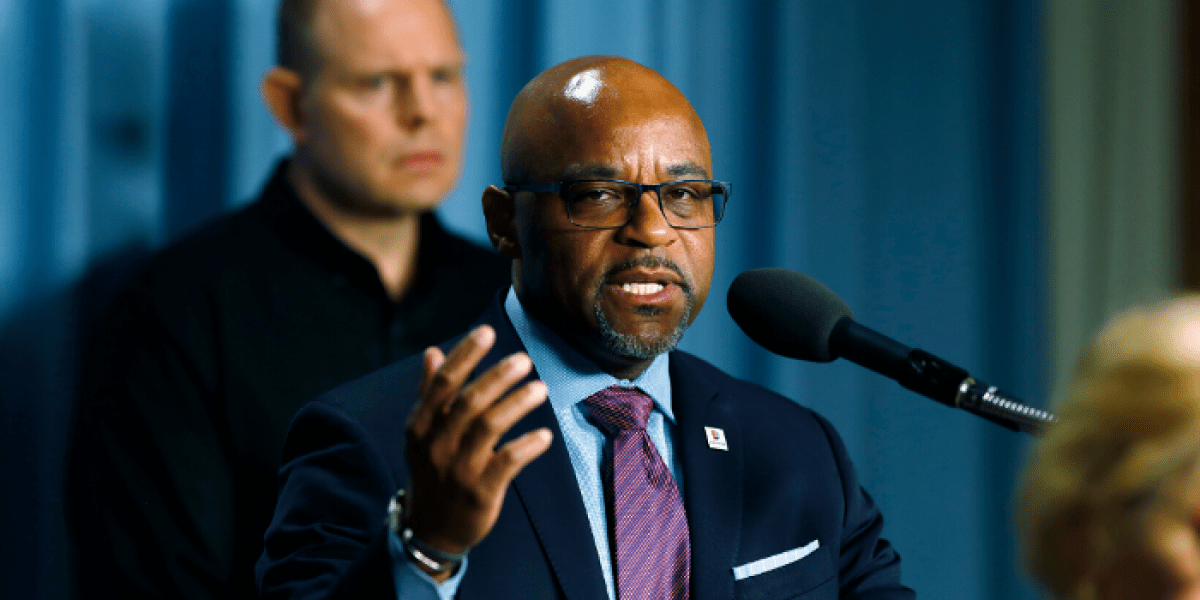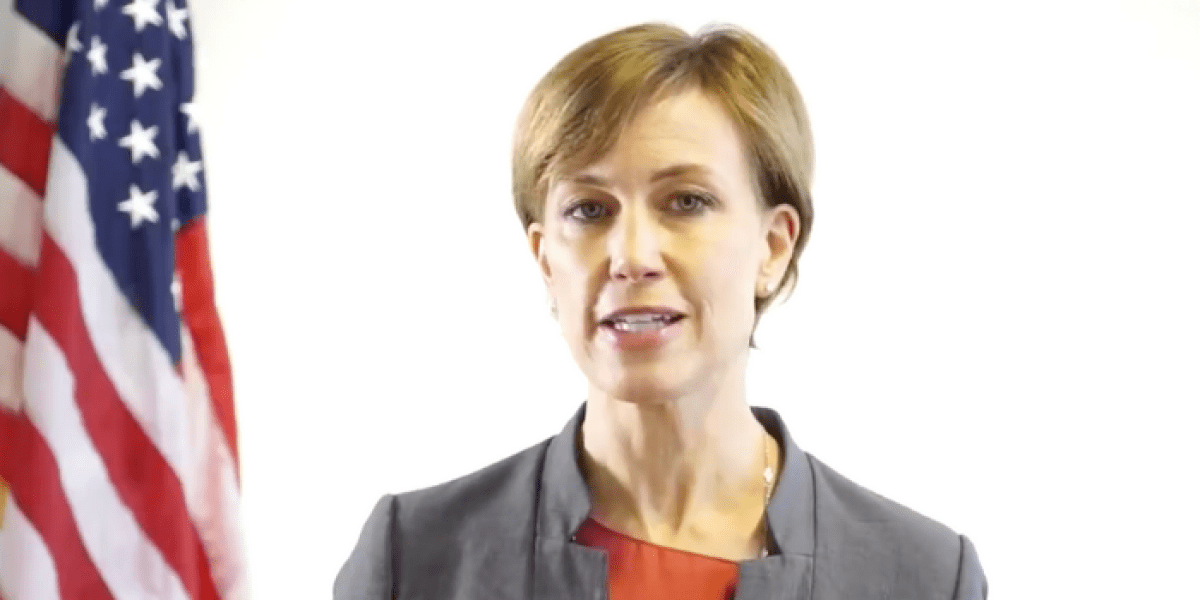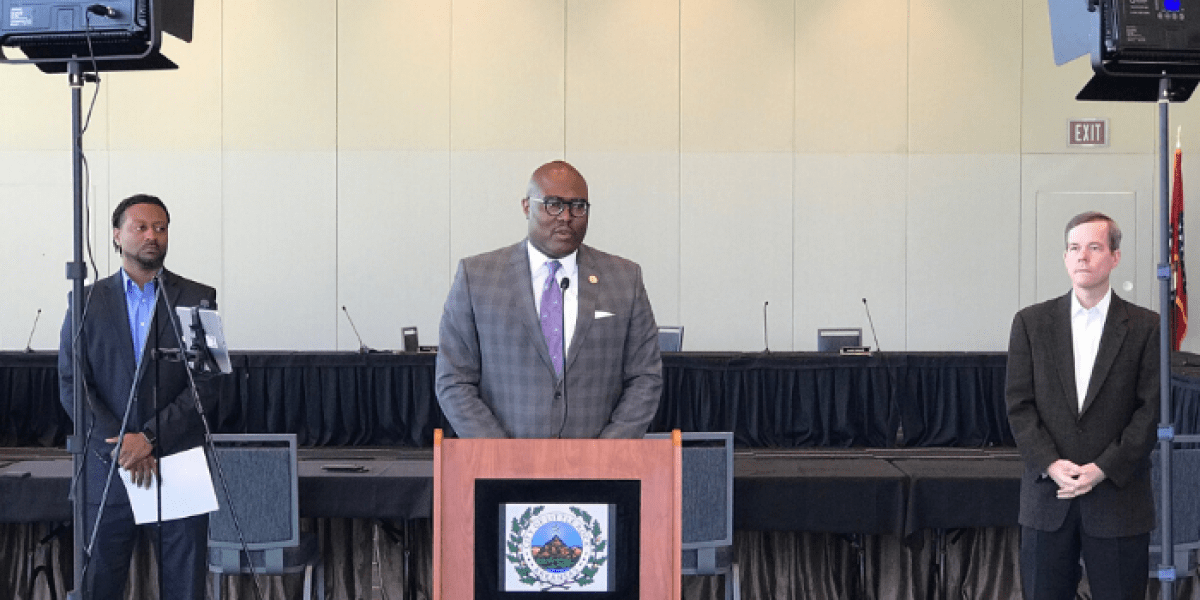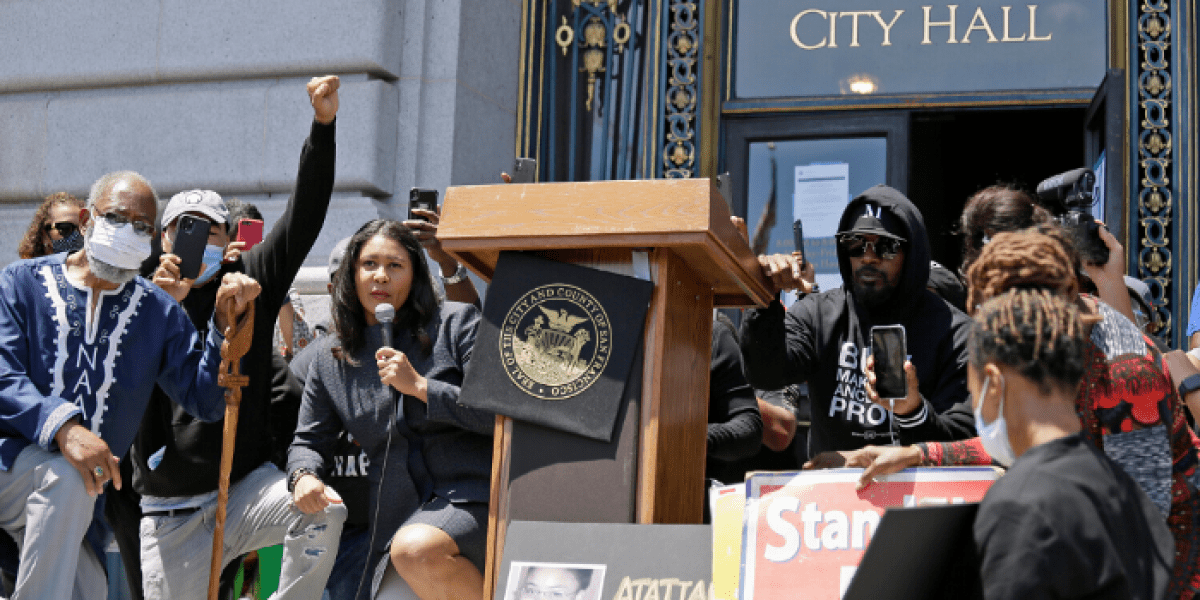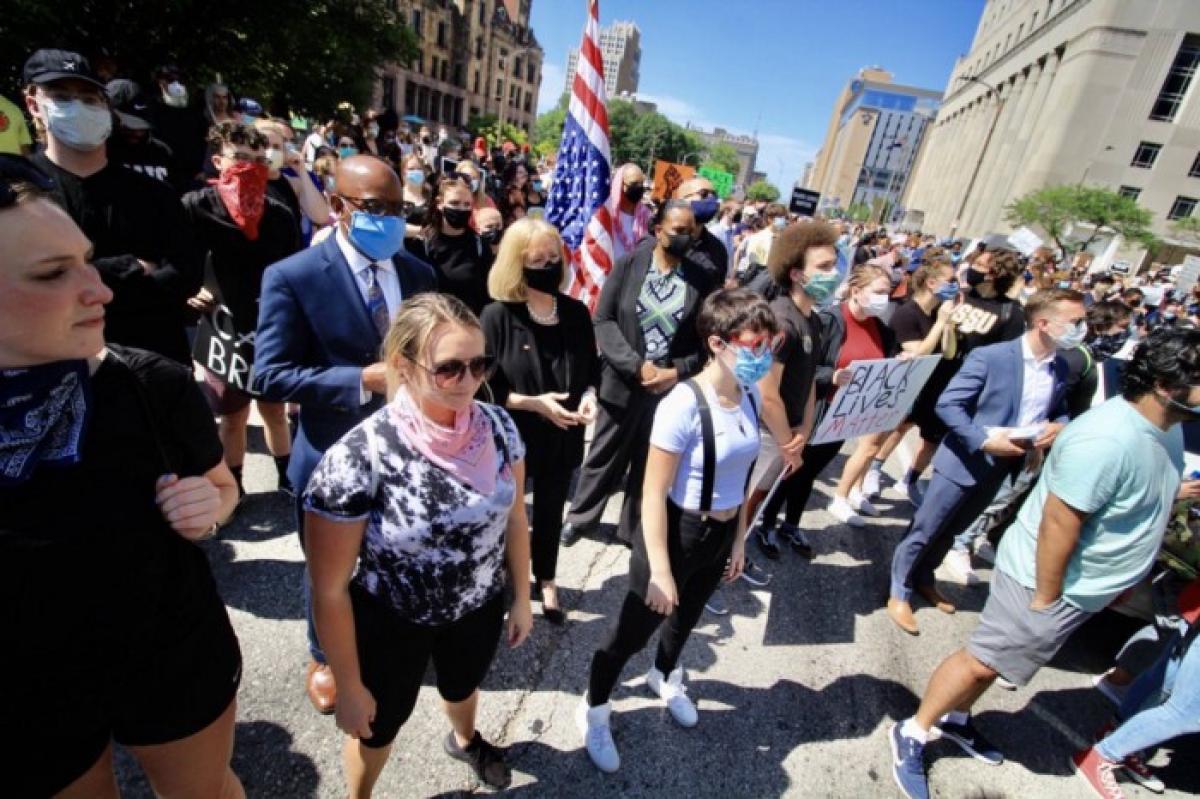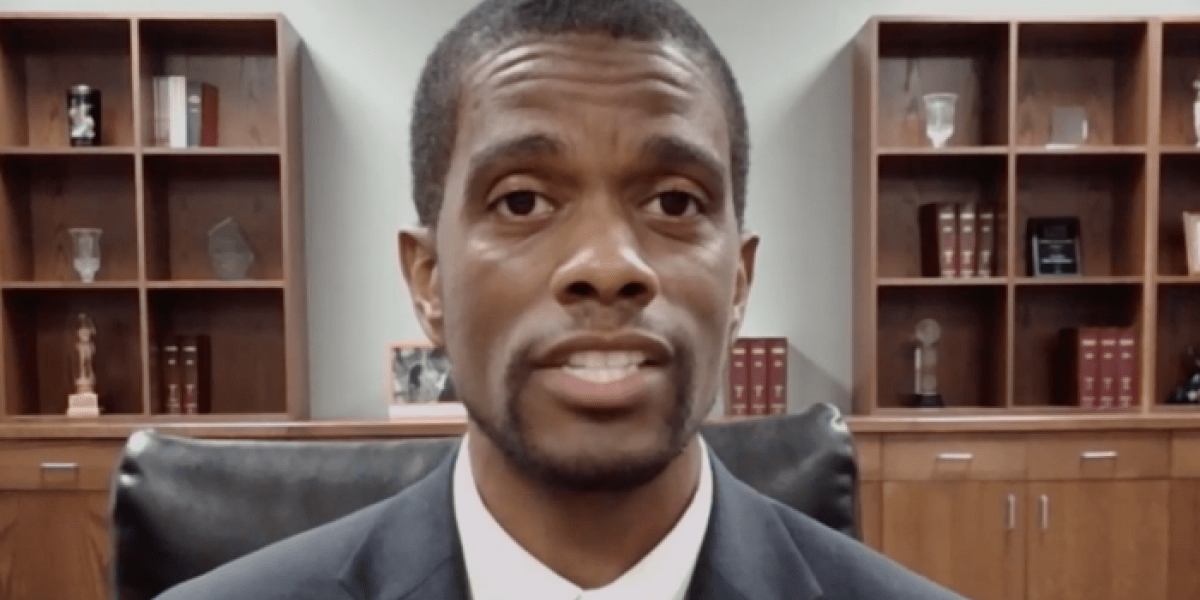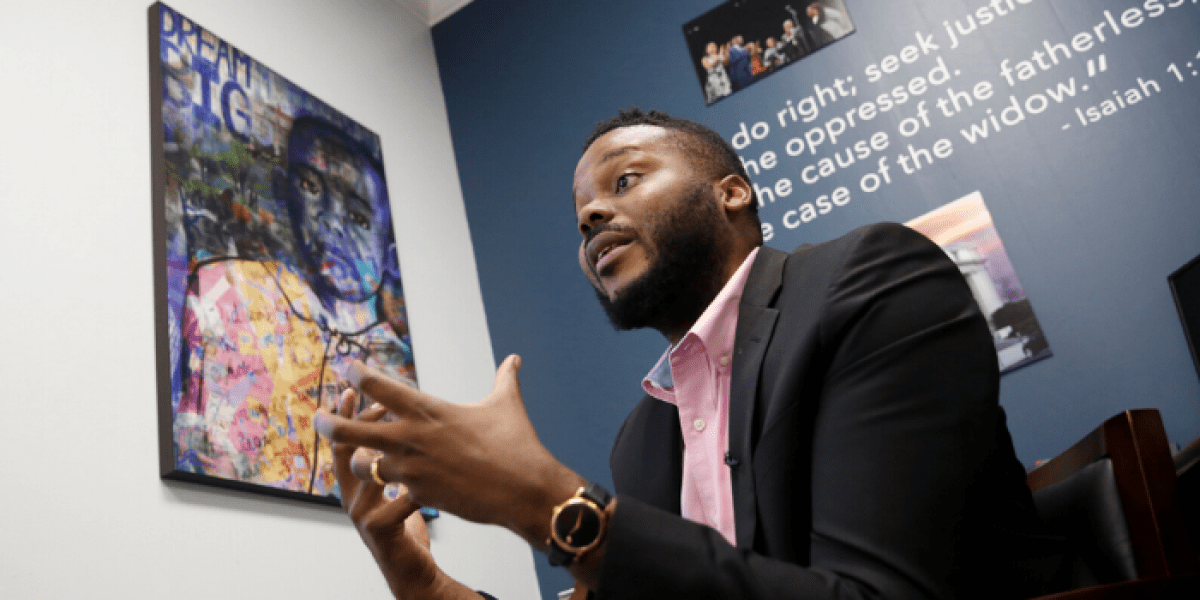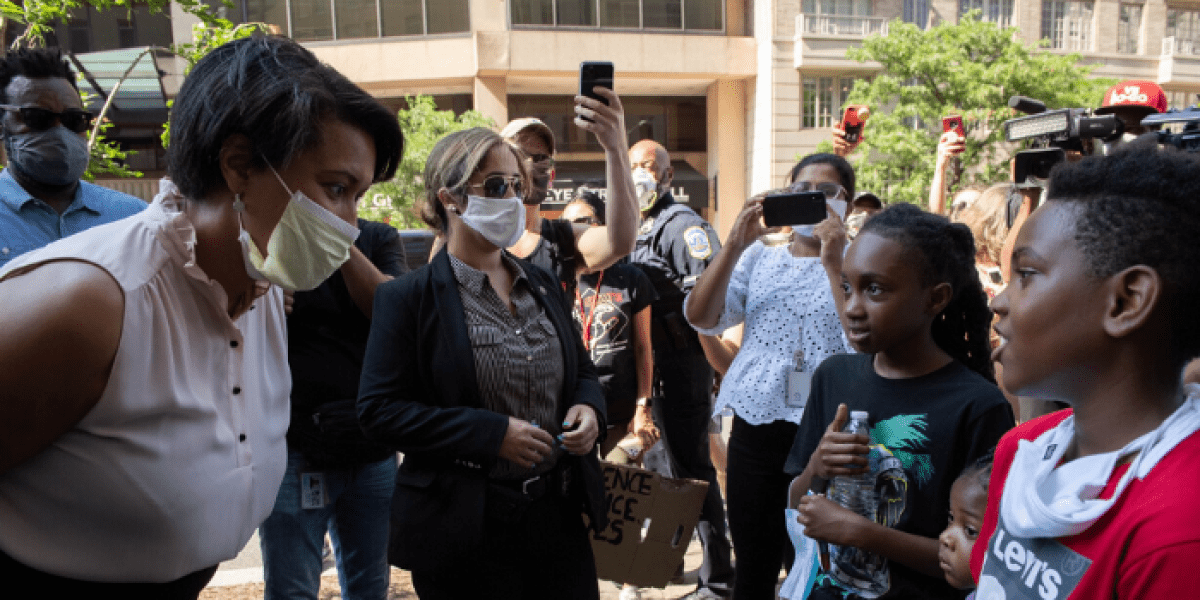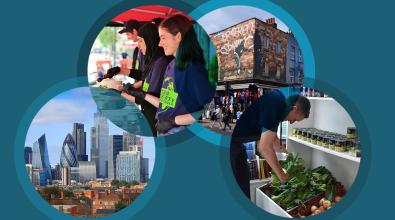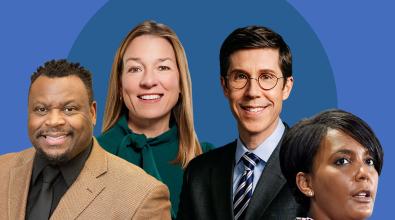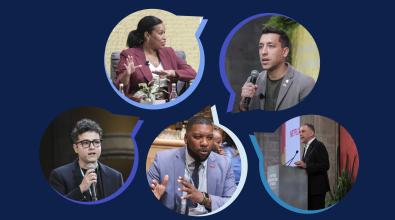Messaging around the protests: What America’s mayors are saying
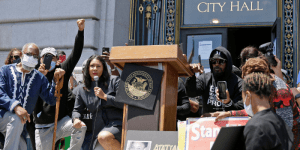
The protests that have broken out in hundreds of cities across the country over the past week have put mayors in a tricky position. Many are explicitly welcoming the demonstrations as an opportunity to galvanize social change — and even marching with the protesters. At the same time, they don’t want to invite the violence and looting that has in some cases followed otherwise peaceful protests.
They have a similar needle to thread when it comes to COVID-19. The demonstrations are taking place in the middle of a pandemic. And while many of the people marching are wearing masks, physical distancing is impossible in the crowds filling America’s streets, parks, and plazas. Here’s how a number of mayors have addressed these challenges in press conferences, public statements, and webcasts over the past few days.
Kathy Sheehan, Albany, N.Y.
“This is a city known for its peaceful protests. We have protests here all the time. You know, we’re the state capital. We had had conversations with the organizers of the protest. The health commissioner had conversations with the organizers of the protests about the concerns that we had around COVID and around keeping safe. Everyone was receptive to that. When you look at the video of the protests, people stayed far apart, they were wearing masks overwhelmingly.”
Keisha Lance Bottoms, Atlanta
“I’m getting a COVID-19 test today, because everything that we’ve talked about over the past two months just became secondary. I just hope that people will get tested and will remember that we’re still in the middle of a pandemic. You know our communities are sick and they’re tired and they’re dying. They’re dying from COVID-19, they’re dying from poverty, they’re dying from police brutality. We’re exploding. You know, these forces seen and unseen — COVID-19 is the one that’s unseen and police brutality is the one that we can see.”
Steve Adler, Austin, Texas
“I’m very concerned about the virus impact. We’re urging everybody to stay away from large events because they have the potential to be ‘superspreader’ events. A few people can give the disease to lots of people and you can’t trace it… . I recognize the importance of this moment and the issues raised by this moment. They’re real. I’m also very concerned about people in these large groups, especially people who might be around family members and parents and grandparents. So it remains a concern, and I want people to try to find ways to be able to express their views but still social distance.”
Marty Walsh, Boston
“We believe in free speech. We believe in people’s right to protest, people’s right to march….
Our public health department contacted some of the [protest] organizers and we were giving out masks yesterday to the marchers to make sure the marchers were protecting themselves. It seems like coronavirus has taken a backseat right now but it’s very much front and center…. Everything that we’ve been talking about for the last three months here, and keeping our numbers of cases down, and trying to keep people safe, didn’t go away yesterday. And I think that it’s important and incumbent upon all of us to continue to remember that. This virus has killed over 600 Bostonians…. My message is to take care of yourself and be careful because you’ll take that virus in your house and the damage that might have been caused last night you’ll do far greater damage to your own family if elderly people get sick and pass from this.”
Lori Lightfoot, Chicago
“COVID-19 has not disappeared from Chicago…. We worry about the thousands of people that have been out in the streets over the last few days. Please, in exercising your First Amendment rights or if you are out for any other reason, you have now put yourself at risk and we need you to isolate yourself.”
Michael Hancock, Denver
“The entire city has worked hard to bend this ‘epi curve’ and get on the other side of it and create a safe space where we can begin to open up our community and economy. These protests, where people are in masks, some of them without face coverings, they’re at very close proximity and they’re yelling, their mouths are open wide, they’re possibly transmitting the virus, and possibly coughing and removing masks as a result of the response of law enforcement. It’s important that people get tested so that we don’t have another peak…. We need people to get tested. It is free. All you have to do is register, no questions asked, we just need to get people tested.”
Leirion Gaylor Baird, Lincoln, Neb.
“Communities of color are being disproportionately impacted by this disease right here in Lincoln. So the idea that folks [who] have important messages that they should get out, and that their voices need to be heard, may be subjecting themselves to further threats is absolutely painful for all of us to consider. We know that they’re aware; they’re making informed choices. We are encouraging anyone who goes to a rally to please wear a face mask [and] try to keep some distance between yourself and others so that everyone can stay safe tonight and in the coming weeks.”
Frank Scott, Jr., Little Rock, Ark.
“Out of an abundance of caution, we are putting in place this curfew to protect our residents from outside forces who seek to do harm to our city and to continue to slow the spread of COVID-19. We respect the rights of residents to peacefully protest and fully expect that they will.”
London Breed, San Francisco
“We’re in the midst of COVID-19. Imagine how many more infections are going to occur because of these large gatherings, because they’re not necessarily being done safely.
Lyda Krewson, St. Louis
“As a country, we’ve spent the past two and a half months trying to keep everyone safe from COVID, and the protest brings up all the issues with regard to COVID and transmission of COVID…. For those of you who are going to protest, we will be supplying masks, taking masks to some of the protests, because we can’t stop thinking about COVID. We know black and brown communities have been more devastated by COVID than white communities, and we don’t want these protests to contribute even more to that tragedy. We are in the middle of a health pandemic.”
Melvin Carter, St. Paul, Minn.
“I am very worried about the possibility that this will become a major ‘superspreader’ event. Our goal is to ramp up our testing and treatment capacity. We are fortunate in Minnesota that we had a governor who took strong action early. That helped us to flatten the curve while our health-care professionals have boosted our testing and treatment capacity. But, yes, there is a great threat and likelihood for this to result in a spike in cases in a way that further traumatizes and victimizes all of those communities that we are working to stabilize.”
Michael Tubbs, Stockton, Calif.
“For those protesting, please stay healthy. We’ve had 172 new covid cases in our county since Thursday. We need you.”
Muriel Bowser, Washington, D.C.
“We’re very concerned, because this type of activity is happening all across the country and people are traveling all across the country. I’m concerned. Looking at a vast majority of the people down here protesting, they had on masks. They weren’t social distancing. And I don’t know if they had masks on the whole time. In [my police] chief’s world, this is a First Amendment demonstration response. In [my Health director] Dr. Nesbitt’s world, this is a mass gathering that we don’t want for the prevention of COVID.”
